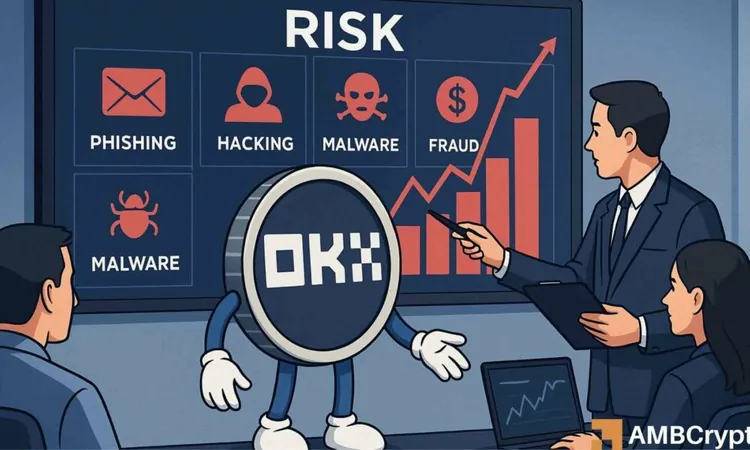
Shocking New Report Reveals Hidden Links Between Alcohol and Cancer Risk - What You Need to Know!
2024-09-21
Author: Ken Lee
Groundbreaking Report Overview
A groundbreaking report published by the American Association for Cancer Research has unveiled a concerning trend: adults under 50 are increasingly being diagnosed with breast and colorectal cancers, and alcohol consumption may be a significant contributor to this disturbing rise.
The Paradox of Cancer Incidence
Despite advancements in cancer therapies that have led to improved survival rates, the report highlights a troubling paradox—overall cancer incidence is on the upswing, especially among younger adults battling cancers of the gastrointestinal tract, such as colorectal cancer. With a staggering 40% of all cancer cases connected to lifestyle factors, this report underscores the urgency for individuals to take control of their health by reducing alcohol consumption, alongside other measures like avoiding tobacco, maintaining a balanced diet, exercising, and limiting exposure to harmful pollutants.
Awareness and Education
“Over half of the population remains unaware that alcohol could heighten cancer risk,” warns Jane Figueiredo, an epidemiologist from Cedars-Sinai Medical Center, emphasizing the need for awareness campaigns and cancer-specific warning labels on alcohol products. This revelation arrives as experts reassess the previously held notion that moderate alcohol intake could offer heart-protective benefits. Recent studies suggest that both moderate and light drinkers are not shielded from heart disease when compared to those who drink occasionally—in fact, they may suffer higher cancer-related mortality.
Statistics on Cancer and Alcohol
Alarmingly, while only 5.4% of cancers in the U.S. were linked to alcohol in 2019, knowledge of this connection remains shockingly low; fewer than one-third of young women aged 18 to 25 recognize the link to breast cancer. Notably, cancer rates among adults in their 30s surged dramatically between 2010 and 2019, particularly for breast, thyroid, colon, and rectal cancers.
Early-Onset Colorectal Cancer
The report details a troubling statistic: cases of early-onset colorectal cancer—which affects adults under 50—rose at an annual rate of 1.9% from 2011 to 2019. Notably, while the survival rate continues to improve for older individuals with breast and colorectal cancers, younger generations are experiencing rising incidence rates of these malignancies, alongside other gastric and blood cancers.
Factors Contributing to Cancer Risk
The factors behind this increase in early-onset colorectal cancer remain poorly defined. However, research indicates a strong correlation between consistent alcohol use during young adulthood and the risk of colorectal cancer later in life. Additionally, as individuals age, the risks associated with increased alcohol consumption are exacerbated, impacting the gut microbiome—a community of bacteria, fungi, and viruses that play a pivotal role in our overall health. According to Dr. Figueiredo, the alteration of gut bacteria through alcohol intake could significantly influence cancer development.
Hormonal Links
Moreover, alcohol consumption is believed to elevate estrogen levels in women, leading to an increased risk of breast cancer. For women looking to mitigate this risk, reducing alcohol intake could be a crucial preventive strategy.
Risk During Pregnancy
The report also presents a compelling argument for pregnant women to abstain from alcohol, revealing that consuming alcohol during pregnancy raises the risk of childhood leukemia in their offspring. Both moderate and high levels of drinking during pregnancy have been linked to this increased risk.
Conclusion
As the conversation about alcohol and health evolves, this report serves as a critical wake-up call to reassess our drinking habits. It's time to spread the word—understanding the risks associated with alcohol consumption could be vital to reducing cancer incidence among all age groups, especially the vulnerable younger population. Don’t let the myths about alcohol’s so-called benefits cloud the dangers; prioritizing awareness could save lives.





 Brasil (PT)
Brasil (PT)
 Canada (EN)
Canada (EN)
 Chile (ES)
Chile (ES)
 Česko (CS)
Česko (CS)
 대한민국 (KO)
대한민국 (KO)
 España (ES)
España (ES)
 France (FR)
France (FR)
 Hong Kong (EN)
Hong Kong (EN)
 Italia (IT)
Italia (IT)
 日本 (JA)
日本 (JA)
 Magyarország (HU)
Magyarország (HU)
 Norge (NO)
Norge (NO)
 Polska (PL)
Polska (PL)
 Schweiz (DE)
Schweiz (DE)
 Singapore (EN)
Singapore (EN)
 Sverige (SV)
Sverige (SV)
 Suomi (FI)
Suomi (FI)
 Türkiye (TR)
Türkiye (TR)
 الإمارات العربية المتحدة (AR)
الإمارات العربية المتحدة (AR)